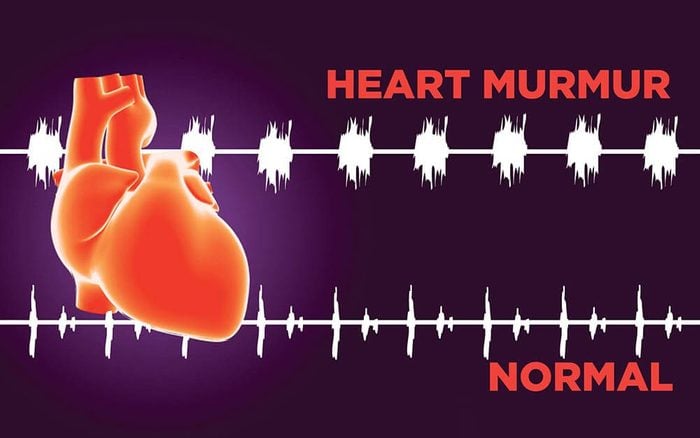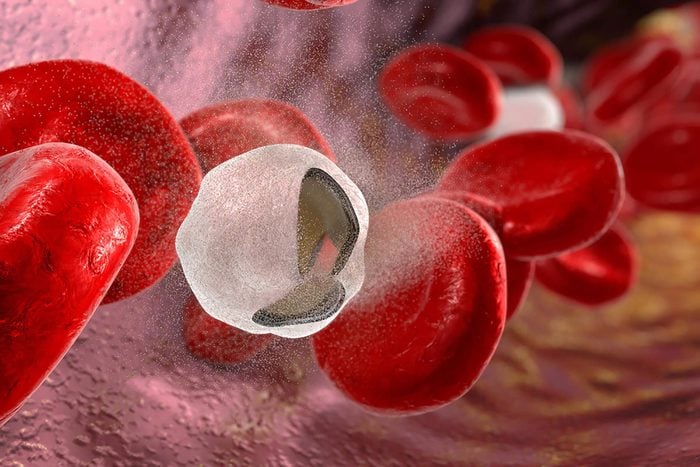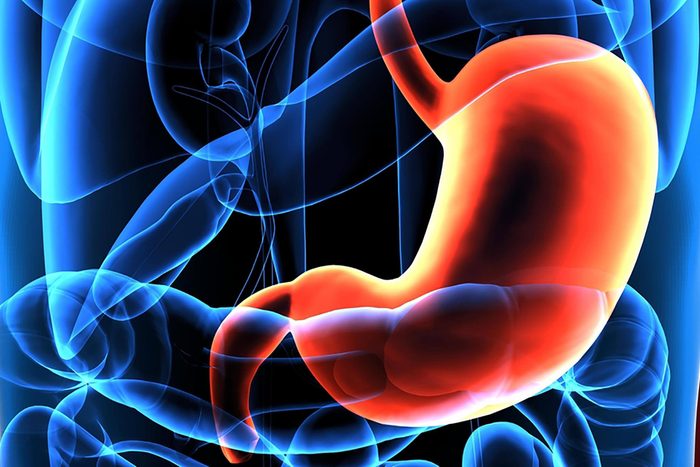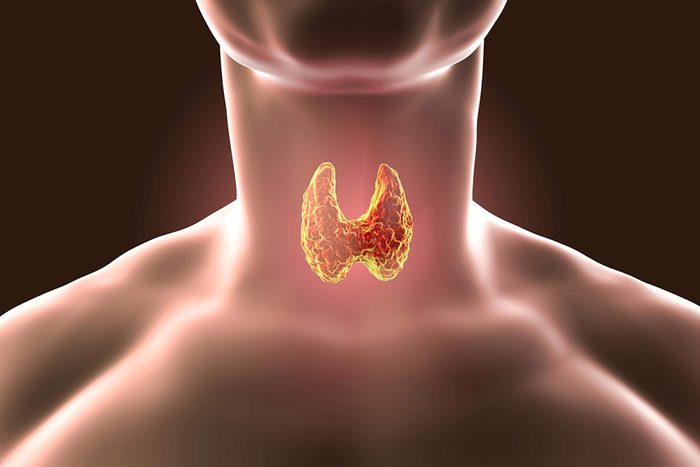
What is a heart murmur?
A heart murmur doesn’t feel like a fluttering in your chest. In fact, you can’t feel it all—a stethoscope is the only way to detect one because a heart murmur is an unusual whooshing or swishing sound of blood flowing in or near your heart. Heart murmurs are heard between heartbeats due to turbulent or abnormal blood flow. Some heart murmurs are harmless, but others can signal an underlying heart condition. “It can be caused by heart valve problems—either narrowing or leaking of the valves—holes in the heart, or other congenital heart defects,” says Brent Lampert, DO, a cardiologist at The Ohio University Wexner Medical Center in Columbus. “However, most are innocent or harmless murmurs.”
Some murmurs, depending on their cause, can trigger symptoms. A doctor can detect any heartbeat irregularities at your regular physical exam and evaluate further with an echocardiogram (an ultrasound of the heart). “It’s important to know that many patients will not experience symptoms, or the valve disease progresses slowly enough that the heart compensates and symptoms are hardly noticed,” Dr. Lampert says. Now that you know what a heart murmur is, here are the symptoms to watch for.

Shortness of breath or chest pain
Feeling winded or having difficulty breathing when you would normally be breathing easily can be a sign of a heart murmur related to valve issues. Valve stenosis—narrowing and tightening of the valve—limits forward blood flow. Valve regurgitation is when a valve doesn’t close completely, causing backward blood flow, also known as a leaky valve. “Valves within the heart are doors designed to keep blood flowing in one direction. Sometimes these doors might not close properly or open completely,” says Patrick Collier, MD, PhD, a cardiologist at the Cleveland Clinic. Be on the lookout for these heart attack signs.

Anemia
Iron deficiency, or anemia, is more a cause than a symptom; it means there are not enough healthy red blood cells to carry adequate oxygen to all the tissues in your body. Murmurs related to anemia are considered innocent and require no further attention when detected in a healthy heart, according to information from Johns Hopkins University School of Medicine in Baltimore. Still, if you’re experiencing other symptoms and know you’re anemic, it’s a good idea to see your doctor to determine what sort of heart murmur you may have.

Bloating
There are many potential causes of belly bloat, but puffing up all over should be a red flag. “Some people may experience swelling of the ankles, feet, or abdomen,” says Dr. Lampert. Poor blood circulation—possibly caused by dysfunctional heart valves—can sometimes cause excess fluid to build up, commonly in the extremities. Low blood flow can also be a sign of clogged arteries. (Here are 14 heart disease myths.)

Thyroid issues
Occasionally, but not often, the murmur can be traced to a dysfunctional thyroid gland. “An overactive thyroid may cause turbulent blood flow in the heart,” says Dr. Collier, leading to a what’s known as a systolic heart murmur—it occurs before the first sound your heart makes and ends before the second beat.

Pregnancy
An “innocent” murmur might develop when you’re pregnant, due to the increased volume of blood pumping through your body, explains Joy M. Gelbman, MD, a cardiologist at Weill Cornell Medicine and NewYork-Presbyterian in New York City. If a doctor doesn’t detect any other underlying cause, the murmur will likely go away after the pregnancy. (Read up on how cardiologists protect hearts.)

Infection
Endocarditis is an infection of the inner lining of the heart and valves that can cause a murmur, Dr. Gelbman says. It typically occurs when bacteria from another part of your body—commonly your mouth—travels through your bloodstream to become lodged in the heart. (Night sweats can also be a sign of endocarditis.) Maintain good oral hygiene and visit your dentist regularly to help prevent periodontal infections, the American Heart Association suggests.

Dizziness or lightheadedness
It’s normal to feel a little unbalanced after standing up too fast or lightheaded after going long periods without eating or drinking. But feeling dizzy without any obvious reason could be related to a heart murmur. “Some people with severe valve issues have blackout episodes or fainting,” says Dr. Collier. (Look out for these other surprising signs of heart trouble.)

Poor appetite
Infants who aren’t eating well or aren’t growing normally could have a number of different issues, including a growth hormone deficiency, but the problem could be a heart murmur. While it may be just an “innocent” murmur that will disappear over time, a doctor should evaluate any potential congenital heart disease or heart defect, according to the Mayo Clinic. Next, stay healthy by eating the 50 best heart foods.
